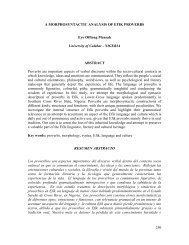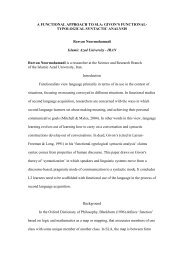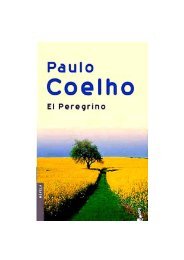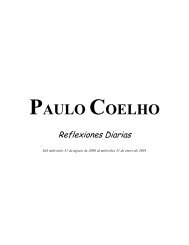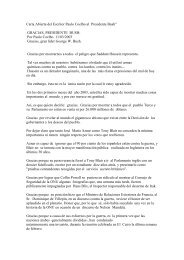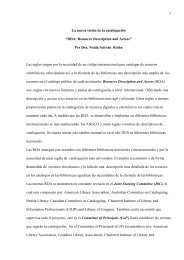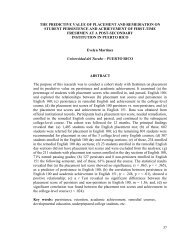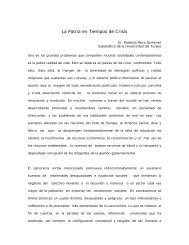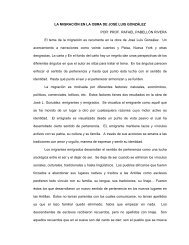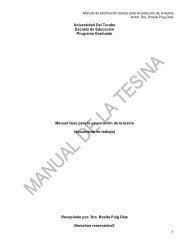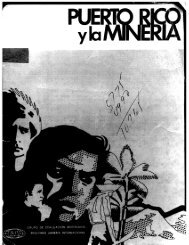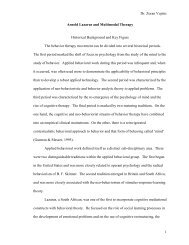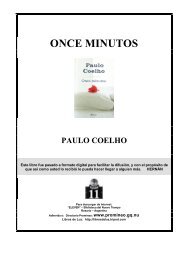Jennet Rodriguez Betancourt
Jennet Rodriguez Betancourt
Jennet Rodriguez Betancourt
You also want an ePaper? Increase the reach of your titles
YUMPU automatically turns print PDFs into web optimized ePapers that Google loves.
writing literary compendiums such as: Aguinaldo Puertorriqueño (1843), Album<br />
Puertorriqueño (1844), Cancionero de Borinquen” (1846), and a second Aguinaldo<br />
Puertorriqueño (1884).<br />
Although this group of young Creole writers evidenced a new form of artistic<br />
expression with a deep love for homeland, they did not communicate “…una firme<br />
expresión de nuestro espíritu, por estar sometidos ingenuamente a los temas y las normas<br />
ya caducas de la literatura española. La imitación supera a la originalidad y el balbuceo<br />
se evidencia” (Pedreira 155). Yet, in their self-expression they began to display a new<br />
self-awareness that was contributing to the beginnings of a new artistic manifestation.<br />
According to Ramón Luis Acevedo, “La literatura puertorriqueña como expresión<br />
colectiva de un pueblo con clara identidad y conciencia de sí mismo comienza hacia<br />
mediados del siglo XIX” (9). He goes on to state that before this period the Puerto Rican<br />
still did not exist as a cultural and historical subject with its own uniqueness.<br />
It is during this period that a new Creole state of mind began to surface and that<br />
writers increased their literary production both in quantity and quality; nonetheless, it<br />
continued under imperial authorization and approval. According to the authors of The<br />
Empire Writes Back, “… early post-colonial texts have the potential for subversion in<br />
their themes, but they cannot be fully developed because of rigid censorship.<br />
Consequently, any type of discourse in the colony is “under direct control of imperial<br />
ruling class who alone license the acceptable form and permit the publication and<br />
distribution of the resulting work” (Ashcroft 6). This is the setting under which Manuel<br />
A. Alonso (1822-1889), one of the most important figures of the group of ascending<br />
young Puerto Rican writers along with Francisco Vasallo son and Santiago Vidarte,<br />
4



